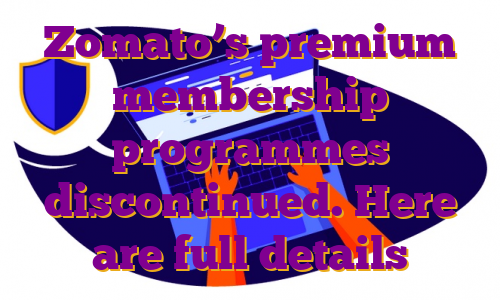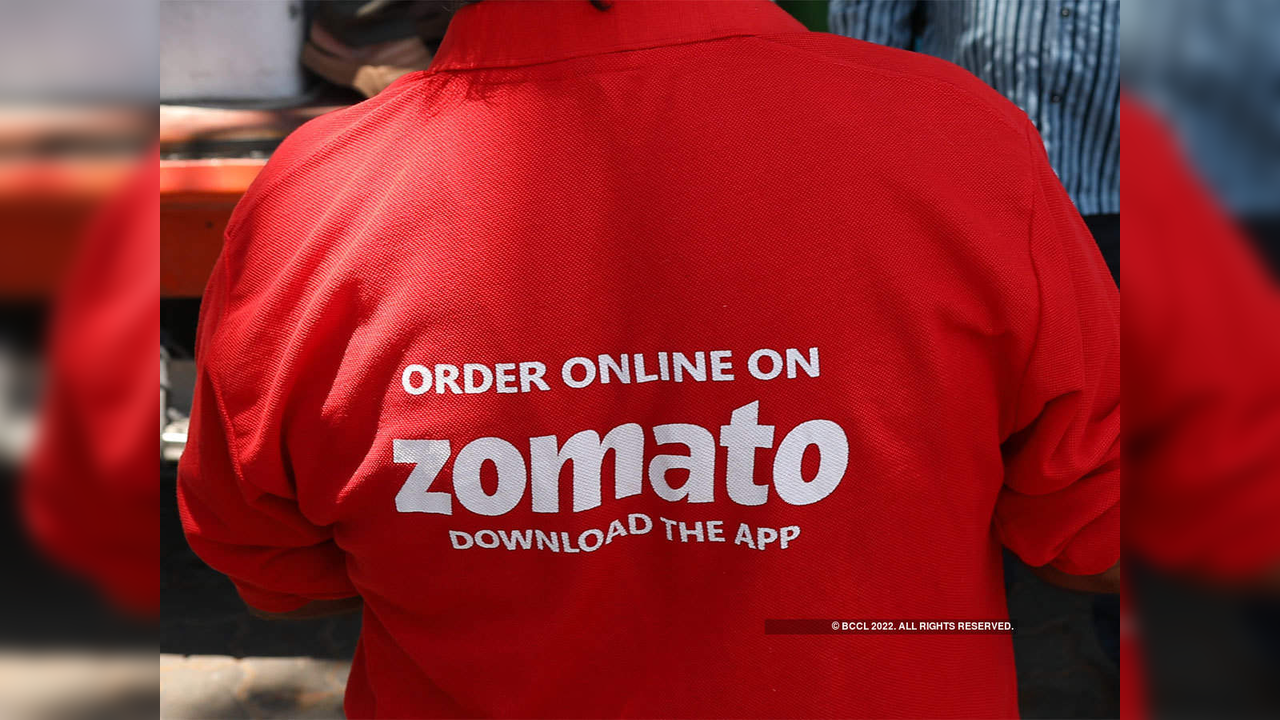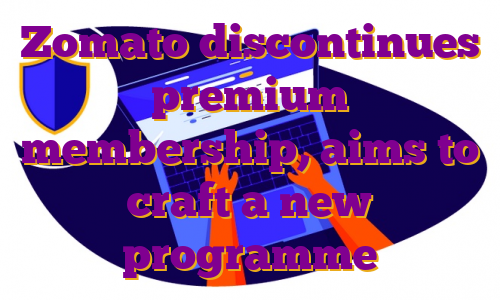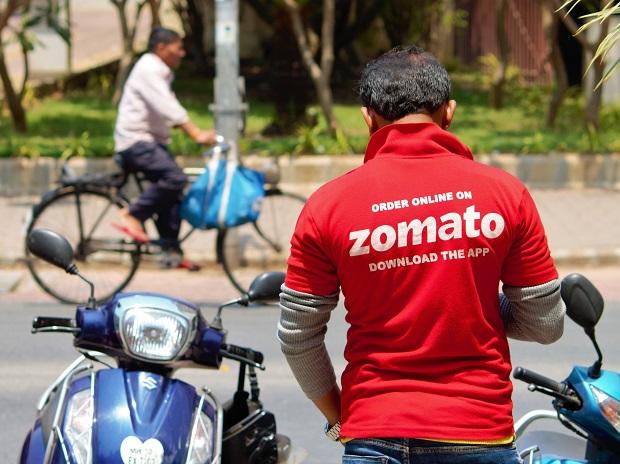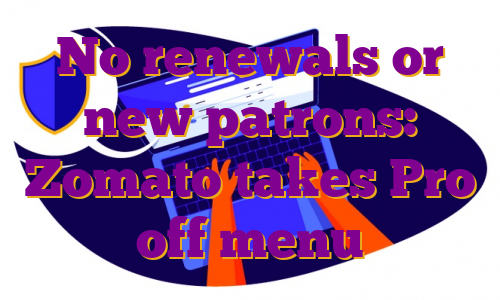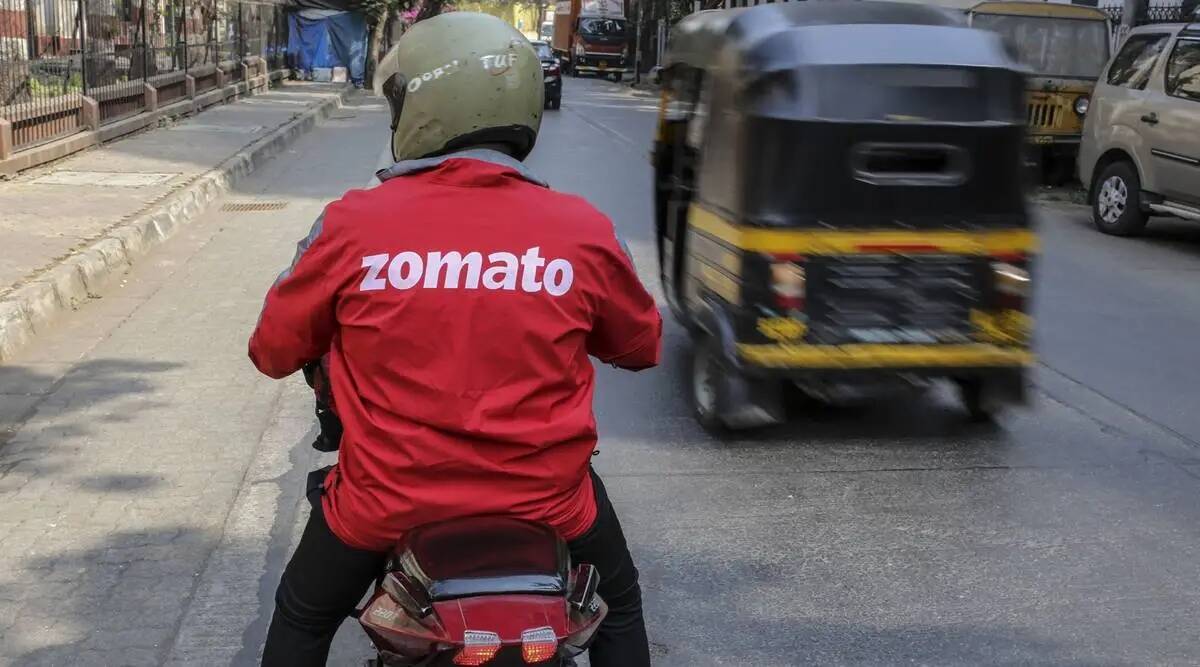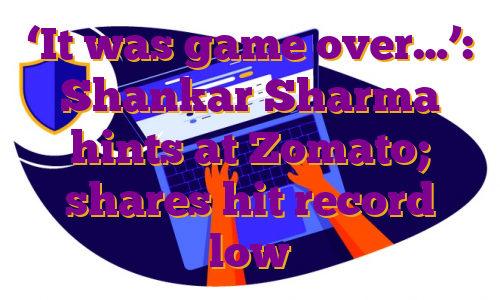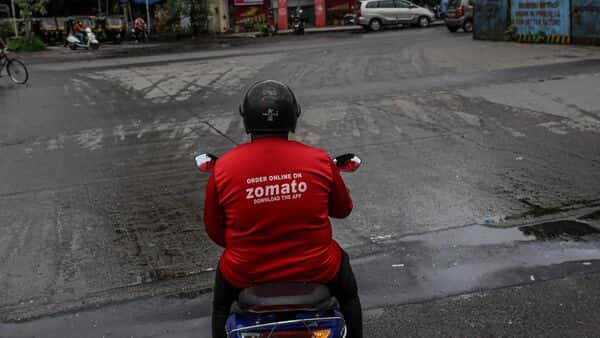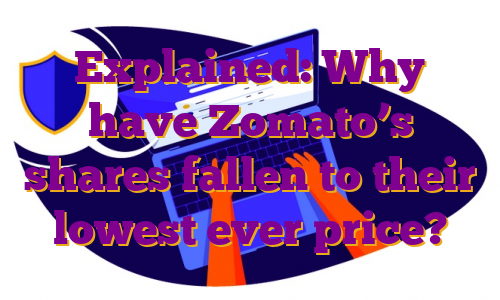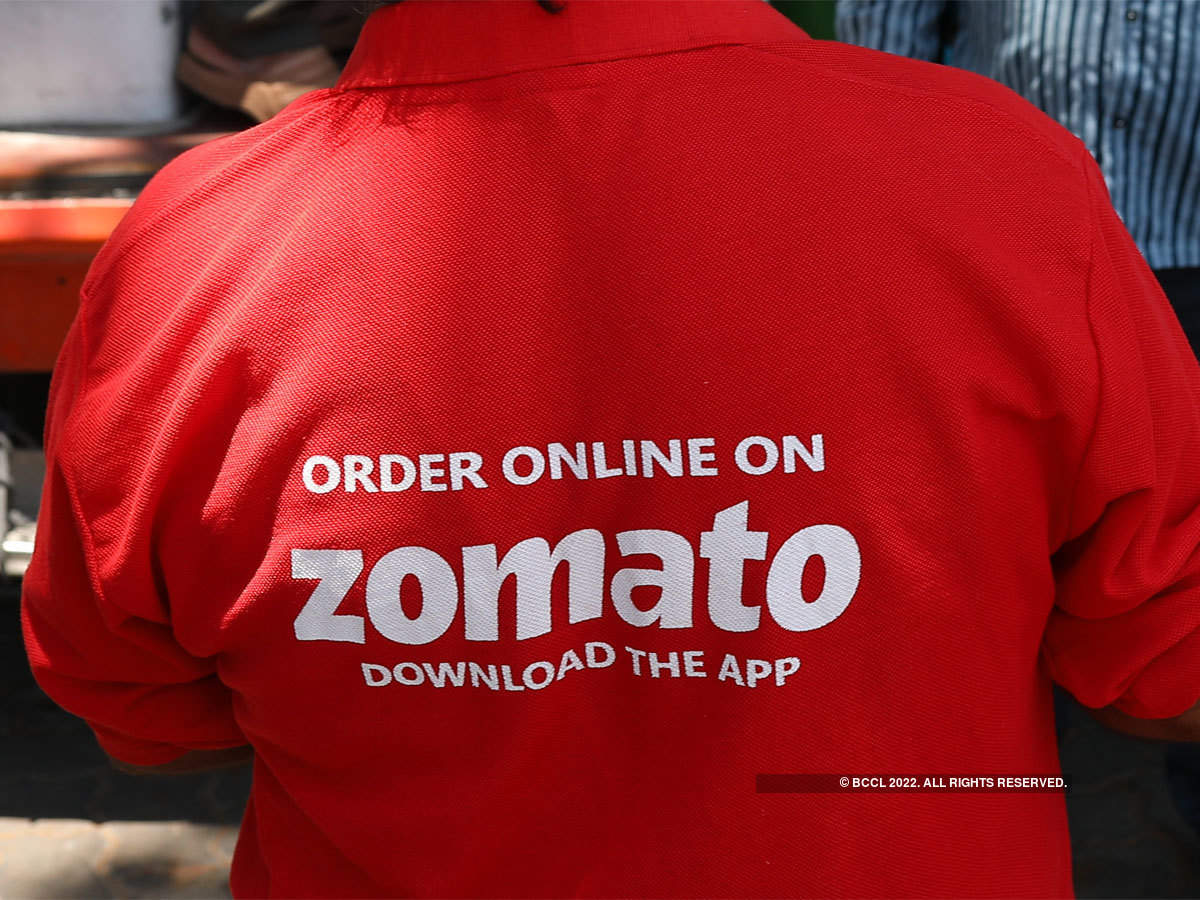 Zomato’s premium membership programmes discontinuedOnline food delivery platform Zomato has decided to discontinue its ‘Pro’ and ‘Pro Plus’ programmes for its consumers. Both these ‘Pro’ schemes were launched by the company by upgrading its ‘Zomato Gold programme’ in the year 2020.Under these programmes, members were getting extra discounts on online food ordering and were also not paying the delivery charge.In a message to users, Zomato informed, “Thank you for being a part of the Zomato Pro program. The membership is unavailable for renewal as we are working on a new and better experience for you. We request you to check the Zomato app to stay updated on the latest offerings.” @codmwolfsniper Hi there, we regret hearing this from you. Please be informed that Zomato Pro Plus is unavailable f… t.co/T0VO0vWnSR— ANI (@ANI) Aug 22, 2022The company is yet to officially confirm the exact reason behind the decision to discontinue these premium schemes, but indicated that it will come up with a new programme as a replacement to discontinued schemes.The company reportedly said it is taking “feedback and working closely with our customers and restaurant partners” to craft a new program. “Meanwhile, we are not onboarding new members and merchant partners to Zomato Pro and Zomato Pro Plus,” it said.The Zomato Pro membership was launched in 2020, while the Pro Plus was started in 2021. The Zomato Pro program was launched as a replacement for Zomato Gold which offered discounts and other benefits at partner restaurants.Zomato’s rival Swiggy continues to offer its loyalty program, Swiggy One, which was launched in November 2021. There are two memberships offered under Swiggy One priced at Rs 299 for three months and Rs 899 for a year. Under the program, Swiggy users get a bouquet of services including — unlimited free deliveries from select restaurants and unlimited free delivery from Instamart on orders higher than Rs 99. .
Zomato’s premium membership programmes discontinuedOnline food delivery platform Zomato has decided to discontinue its ‘Pro’ and ‘Pro Plus’ programmes for its consumers. Both these ‘Pro’ schemes were launched by the company by upgrading its ‘Zomato Gold programme’ in the year 2020.Under these programmes, members were getting extra discounts on online food ordering and were also not paying the delivery charge.In a message to users, Zomato informed, “Thank you for being a part of the Zomato Pro program. The membership is unavailable for renewal as we are working on a new and better experience for you. We request you to check the Zomato app to stay updated on the latest offerings.” @codmwolfsniper Hi there, we regret hearing this from you. Please be informed that Zomato Pro Plus is unavailable f… t.co/T0VO0vWnSR— ANI (@ANI) Aug 22, 2022The company is yet to officially confirm the exact reason behind the decision to discontinue these premium schemes, but indicated that it will come up with a new programme as a replacement to discontinued schemes.The company reportedly said it is taking “feedback and working closely with our customers and restaurant partners” to craft a new program. “Meanwhile, we are not onboarding new members and merchant partners to Zomato Pro and Zomato Pro Plus,” it said.The Zomato Pro membership was launched in 2020, while the Pro Plus was started in 2021. The Zomato Pro program was launched as a replacement for Zomato Gold which offered discounts and other benefits at partner restaurants.Zomato’s rival Swiggy continues to offer its loyalty program, Swiggy One, which was launched in November 2021. There are two memberships offered under Swiggy One priced at Rs 299 for three months and Rs 899 for a year. Under the program, Swiggy users get a bouquet of services including — unlimited free deliveries from select restaurants and unlimited free delivery from Instamart on orders higher than Rs 99. .
Zomato discontinues premium membership, aims to craft a new programme
Food delivery firm Zomato said on Monday that it is going to discontinue its ‘Pro’ and ‘Pro Plus’ programmes for its consumers. The Deepinder Goyal-led firm introduced Zomato Pro and Zomato Pro Plus by upgrading its Zomato Gold programme to Zomato Pro in 2020. The Gurugram-based firm is now closely working with its customers and restaurant partners to craft a new programme.
“While Zomato Pro and Pro Plus have been loved tremendously by our customers and restaurant partners, we want it to be even more beneficial, especially for the most engaged customers and restaurant partners. We are taking feedback and working closely with our customers and restaurant partners to craft a new program. Meanwhile, we are not onboarding new members and restaurant partners to Zomato Pro and Zomato Pro Plus,” said a Zomato spokesperson.”
The benefits of the Pro pack included discounts on food delivery and dine-in at the company’s partner restaurants. The platform has also revised its terms with the co-branded credit card with RBL Bank. It has decided to cap the cashback on orders placed via the bank’s credit card. However, the app has decided to add the spending done on the Blinkit app to the cashback scheme.
“While active members can continue to get their benefits as promised, they will not be able to extend/renew their memberships once their membership tenure expires. Once again, we are humbled by the love customers have shown towards Zomato Pro and Zomato Pro Plus, and we promise to come up with a bigger, better experience very soon,” said the Zomato spokesperson.”
The development comes at a time when Zomato acquired quick commerce company Blinkit on June 29 for Rs 4,447 crore in an all-stock deal. Blinkit was earlier known as Grofers. According to the sources, the company is focusing more on its quick commerce strategy and may include the services of Blinkit as part of the new programme that it plans to launch. Moreover, the company is also looking beyond its loyalty programmes and aiming at introducing newer use cases, which may lead current offline spending on restaurant food moving on to its platform.
Deepinder Goyal, founder and chief executive officer (CEO), Zomato, said that the total commerce market in India is valued at $1.3 trillion and in the long term, quick commerce is seen emerging as a significant channel of demand for customers at least in the top cities.
“This foray into the next big category (quick commerce) is timely as our existing food business is steadily growing towards profitability,” Goyal said in a blog post.
In the shareholders’ letter dated February 2022, Zomato shared that it will invest up to $400 million in quick commerce in CY22 and CY23. Goyal had said that quick commerce is a natural extension of food delivery. Zomato expects the journey to profitability to only accelerate the post-Blinkit deal.
Discontinuing the current Zomato Pro service may also be a strategy to control cash burn, according to the sources. The company reported a consolidated loss of Rs 186 crore in the first quarter of 2022-23 (Q1FY23). The company’s losses declined both on a year-on-year (YoY) and sequential bases. The company’s consolidated loss was Rs 359 crore in Q1FY22 and Rs 359.7 crore in Q4FY22.
Zomato’s chief rival in India, Swiggy, runs a similar loyalty program called Swiggy One. It was launched in November 2021. The single-tier membership programme offers unlimited free deliveries from over 70,000 popular restaurants. This also includes unlimited free Instamart deliveries on all orders above Rs 99.
Recently, Swiggy said that it is offering three new benefits in its membership programme. The firm said Swiggy One will give users unlimited free deliveries on deliveries from restaurants as far as 10 km, and for orders starting at Rs 149.On Swiggy Instamart, members can save more with exclusive offers on 1,000 products in categories ranging from daily essentials, fruits and vegetables, baby products, personal care, home utilities, and cleaning items.Additionally, members can avail extra discounts of up to 30 per cent on their food orders from partner restaurants. Swiggy One also had plans to extend its members discounts on Genie deliveries as well.
According to the sources, the company is now also planning to integrate the services and various offerings of Dineout, the leading dining out and restaurant tech platform, under Swiggy One. In May this year, Swiggy acquired Dineout for an undisclosed amount. Dineout brings with it an industry-leading network of over 50,000 restaurant partners.
.
No renewals or new patrons: Zomato takes Pro off menu
Food tech platform Zomato is recalibrating its loyalty programs, and has closed new sign ups and renewals for its flagship program Zomato Pro, The Indian Express has learnt. The company had already shut down the more premium iteration Zomato Pro Plus earlier, and revised the terms of its co-branded credit card with RBL Bank.
The Gurgaon-based company launched Zomato Pro in 2020 and Zomato Pro Plus in 2021. The Zomato Pro program replaced the Zomato Gold membership offering. Pro members get discounts while ordering food online from or dining out at partner restaurants.
In a message to users trying to renew their expired Pro membership, Zomato says: “Thank you for being a part of the Zomato Pro program. The membership is unavailable for renewal as we are working on a new and better experience for you. We request you to check the Zomato app to stay updated on the latest offerings.”
Confirming the development in response to queries sent by The Indian Express, a Zomato spokesperson said: “While Zomato Pro and Pro Plus have been loved tremendously by our customers and merchants, we want it to be even more beneficial, especially for the most engaged customers and merchant partners.”
“We are taking feedback and working closely with our customers and restaurant partners to craft a new program. Meanwhile, we are not onboarding new members and merchant partners to Zomato Pro and Zomato Pro Plus. While active members can continue to get their benefits as promised, they will not be able to extend/renew their memberships once their membership tenure expires,” the spokesperson added.
In a separate message to the users of Zomato’s co-branded credit card, RBL Bank and the food tech platform said that September 20 onwards, it was capping the cashback from orders placed on the app using the co-branded credit card to 500 Edition Cash a day (1 Edition Cash is redeemable as Re 1 for subsequent Zomato orders).
Zomato offers 5 per cent cash back on spends done on its app. Under the new conditions, the company has also added spends done on the Blinkit app to the cashback scheme. Zomato recently acquired quick-commerce platform Blinkit, formerly known as Grofers.
ExplainedEye on newer use casesThe decision to pause onboarding of new members as well as to renew the membership of existing ones on Zomato Pro comes amid the company’s strategy of introducing newer use cases, focused more on dining out. These plans are unfolding as Zomato attempts to further narrow its losses.
These recent decisions are in line with Zomato’s new strategy of looking beyond loyalty programs to drive customer frequency. In its earnings call for the April-June quarter earlier this month, Zomato’s chief financial officer Akshant Goyal said, “I think if you have to go from where we are today and meaningfully increase customer frequency, we will have to look beyond these loyalty programs and look at introducing newer use cases, which perhaps leads to a lot of the current offline spend on restaurant food moving on to our platform.”
The company reported a consolidated net loss of Rs 186 crore for the three-month period ended June, compared with Rs 359.70 crore in the March quarter and Rs 360.70 crore in the quarter ended June 30, 2021. This, even as its topline grew to Rs 1,413.90 crore in April-June this year, against Rs 844.40 crore in the same period last year.
The company said food delivery business grew 15 per cent sequentially and saw a break-even in adjusted EBITDA (earnings before interest, taxes, depreciation and amortisation) — a measure of its operating margins.
Newsletter | Click to get the day’s best explainers in your inbox
Zomato’s chief rival in the food tech space Swiggy too runs its loyalty program Swiggy One, which was launched in November last year.
Swiggy operates this program as a common membership for the bouquet of services it provides, including food delivery, quick-commerce and local door-to-door package delivery.
The Swiggy One program offers the app’s users unlimited free deliveries from select restaurants and unlimited free delivery from Instamart on orders greater than Rs 99 in value, in addition to other discounts and no surge fees.
!function(f,b,e,v,n,t,s)
{if(f.fbq)return;n=f.fbq=function(){n.callMethod?
n.callMethod.apply(n,arguments):n.queue.push(arguments)};
if(!f._fbq)f._fbq=n;n.push=n;n.loaded=!0;n.version=’2.0′;
n.queue=[];t=b.createElement(e);t.async=!0;
t.src=v;s=b.getElementsByTagName(e)[0];
s.parentNode.insertBefore(t,s)}(window, document,’script’,
‘https://connect.facebook.net/en_US/fbevents.js’);
fbq(‘init’, ‘444470064056909’);
fbq(‘track’, ‘PageView’);
.
‘It was game over…’: Shankar Sharma hints at Zomato; shares hit record low
Food delivery company, Zomato is in a bloodbath on stock exchanges since the start of this week. Tuesday resulted in more beating with Zomato shares hitting a fresh 52-week low. Following the loss of love in Zomato shares, it reminded veteran Shankar Sharma of the movie Deewar where Bollywood’s Big B, Amitabh Bachchan quoted a famous dialogue when he found the news of his father’s death. The veteran concluded that Zomato shares were a game over on the listing itself. In a span of two days, Zomato shares have dropped by more than 22% on BSE. On BSE, Zomato shares settled at ₹41.65 apiece down by ₹5.90 or 12.41%. The shares were near the fresh 52-week low of ₹41.25 apiece that was clocked earlier in the trading hours. At the current market price, Zomato has a market valuation of ₹32,793.77 crore. The nosedive in Zomato shares emerged since Monday. From July 22, when the shares were around ₹53.65 apiece on BSE, the shares have clocked a free fall of about 22.37% in two days this week. Last week, on Friday, Zomato shares announced to consider and approve the un-audited financial results (standalone and consolidated) of the company for the quarter ended June 30, 2022 (Q1FY23) on August 1, 2022. Shankar Sharma today said, “Zomato stock reminds me of what Amitabh Bachchan said in Deewar on hearing news of dad’s death: “Mar to woh bees saal pehle gaya tha. Aaj to sirf ussey jalaya ja raha hai” (He died 20 years ago, today he is just being burned)”. Referring to Zomato shares, Sharma said, “It was game over on listing itself.” Zomato stock reminds me of what Amitabh Bachchan said in Deewar on hearing news of dad’s death:” Mar to woh bees saal pehle gaya tha. Aaj to sirf ussey jalaya ja raha hai”.
It was game over on listing itself.— Shankar Sharma (@1shankarsharma) July 26, 2022
Have Zomato shares met their doomsday?
Zomato launched its IPO from July 14 to July 16 last year at a price band of ₹72 to ₹76 apiece. Cumulatively, the IPO had received a strong demand from investors as the issue got oversubscribed by 38.25 times. After the IPO, Zomato shares made their market debut on BSE and NSE on July 23, 2021. The shares were listed at a premium on the stock exchanges. On BSE, the shares made their entry at ₹115, up 51.32% from the IPO’s upper price band. The shares later clocked a 52-week high of ₹169.10 apiece on BSE. The last time Zomato shares were above ₹100 mark was January 25 this year and since then it has been trading below the level. In a month, Zomato shares have dropped nearly 37%, while year-to-date, the decline is whopping over 70.5%. Since its market debut, the shares have contracted by nearly 67% on BSE. Is it game over for Zomato shares? Analysts at Jefferies in their report said, “Worries of Fed tightening are weighing on the profitless Internet names globally. The entire sector has been going through a period of readjustment as the focus is shifting from growth to cash flow. FANGMAN is down 15-65% YTD. This has also been impacting the global food delivery stocks which are down 50-65% YTD, with Zomato being the worst performing stock.” As per the analysts, tough times have changed the focus and brought acute focus on cash flow across start-ups. Zomato management has also accelerated its journey towards better unit economics and is now eyeing a break-even in the food delivery business in the foreseeable future. Adj Ebitda losses for 4QFY22 were
Catch all the Business News, Market News, Breaking News Events and Latest News Updates on Live Mint.
Download The Mint News App to get Daily Market Updates.
More
Less
Subscribe to Mint Newsletters * Enter a valid email * Thank you for subscribing to our newsletter.
.
Explained: Why have Zomato’s shares fallen to their lowest ever price?
Zomato’s shares fell to under Rs 50, an all-time low, on Monday (July 25), as the year-long lock-in period for its pre initial public offering (IPO) ended on Friday (July 22). In the early hours of trading, the company’s scrip fell to as low as Rs 46, nearly 40 per cent down from its issue price of Rs 76.
Why did Zomato’s stock see this massive sell-off?
On Friday, the mandatory lock-in for promoters, employees, and other shareholders who bought Zomato’s stock before its IPO, ended. This means that these shareholders are now free to sell their shares — which, according to analysts, is the major reason behind Monday’s massive sell-off.
According to rules laid down by the Securities and Exchange Board of India (SEBI), if a company has no identifiable promoters, then its pre-IPO shares are locked in for a period of one year. “Following the lock-in period of one year, the pre-offer shareholders may sell their shareholding in our company, depending on market conditions and their investment horizon. Further, any perception by investors that such sales might occur could additionally affect the trading price of the equity shares,” Zomato said in a Red Herring Prospectus before its IPO.
At the time of reporting this explainer, the company’s market cap stood at Rs 37,911 crore, well below its valuation as a private company, when it was valued at around Rs 43,200 crore. At its last peak, the company’s stock was trading at Rs 169.10 apiece with a market capitalisation of Rs 1.33 lakh crore — meaning more than Rs 95,000 crore of investor wealth had been wiped out by the time of publishing.
The last time the company’s stock took such a severe beating was after its acquisition of quick commerce startup Blinkit (formerly Grofers) last month. In the subsequent four sessions, Zomato’s stock had plunged by more than 20 per cent.
How are other startups’ stocks performing?
Zomato was the first major startup to list on the bourses in July last year, and had seen a blockbuster opening after its shares were listed at Rs 116 apiece — a premium of 53 per cent over the IPO price of Rs 76. However, the stock’s value has consistently fallen after it attained its peak of Rs 169.10 apiece in November last year.
Other startups that followed Zomato to the bourses have also seen a steep correction in their stock prices since listing. Paytm, which had an issue price of Rs 2,150, was trading at Rs 740.35 at the time of publishing — a decline of more than 65 per cent.
E-commerce startup Nykaa, which had an issue price of Rs 1,125 per share, saw a bumper listing as its shares were up 78 per cent when it was first listed. However, since then, the value of the share has fallen, with its scrip trading at Rs 1,410.35 at the time of publishing.
!function(f,b,e,v,n,t,s)
{if(f.fbq)return;n=f.fbq=function(){n.callMethod?
n.callMethod.apply(n,arguments):n.queue.push(arguments)};
if(!f._fbq)f._fbq=n;n.push=n;n.loaded=!0;n.version=’2.0′;
n.queue=[];t=b.createElement(e);t.async=!0;
t.src=v;s=b.getElementsByTagName(e)[0];
s.parentNode.insertBefore(t,s)}(window, document,’script’,
‘https://connect.facebook.net/en_US/fbevents.js’);
fbq(‘init’, ‘444470064056909’);
fbq(‘track’, ‘PageView’);
.

